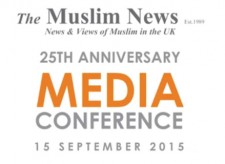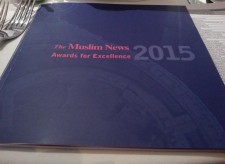By Mahomed Faizal
(Cape Town, The Muslim News): Ebrahim Rasool, South Africa’s expelled Ambassador to the United States, was met with a warm and enthusiastic reception when he arrived back in Cape Town, South Africa Sunday. Crowds gathered to greet the diplomat, offering support and solidarity after his abrupt expulsion from Washington. Rasool’s return was not just a homecoming, but a symbolic moment for many who viewed his removal as a badge of honour rather than a defeat. In his first public comments upon arrival, Rasool remarked, that he had “arrived here today having again been honoured by our country to represent its values that are unflinching in its stand for truth, justice and the equality of all people.”
Rasool’s return was marked by a sense of both pride and resilience. “After months of relentless attacks, it is good to feel the dignity of being African,” he told the crowd.
This sentiment, reflecting both his personal ordeal and his deep connection to his roots, resonated with those who have supported him throughout his time as Ambassador.
Rasool endured a vicious assault on his person from various right-wing organizations closely aligned to President Trump and his officials, including being branded a “terrorist,” “jihadist” and “anti-Semite.” Despite these attacks, Rasool emphasized the strength he found in South Africa’s values of unity, dignity and ubuntu, a philosophy that celebrates interconnectedness as humans.
Rasool’s expulsion was a reflection of the larger geopolitical struggles South Africa faces on the world stage. His sudden expulsion came after comments he made during a webinar in which he critiqued the rising political movements in the U.S., particularly the “Make America Great Again” movement. He described these movements as a reaction to the changing demographic landscape in the U.S., where racial tensions and divisions were becoming more pronounced. White supremacy and creeping fascism were now the order of the day. Rasool also raised concerns about U.S. foreign policy under President Donald Trump, accusing the Administration of eroding democratic principles.
His remarks quickly sparked backlash from U.S. Secretary of State, Marco Rubio, who condemned Rasool’s comments as “unacceptable,” accusing him of spreading division and hostility and being a “race-baiting politician’.
Within days, the U.S. declared Rasool persona non grata, demanding that he leave the country within 72 hours. This decision not only stemmed from his personal views but also reflected broader diplomatic tensions between the U.S. and South Africa, which had been simmering for a couple of months since Trump’s election. Issues like South Africa’s land reform policies and its stance on Israel had already created friction and Rasool’s remarks only added fuel to the fire.
In a statement, Rasool reflected on the work he had hoped to achieve during his time as Ambassador. “This is the work we have been pursuing from my first day of arrival in the USA,” he said. He had envisioned a partnership with the U.S. that would benefit both nations: from securing the renewal of aid programs like PEPFAR, to negotiating reciprocal trade deals that would promote economic prosperity for both countries. “We must continue to seek a better world through President Ramaphosa’s leadership of the G20,” Rasool said, reinforcing his commitment to global collaboration despite the obstacles.
Rasool also highlighted several key initiatives that he had hoped to see through during his tenure. “I would much rather have… successfully reinstated the USA’s aid funds for fighting poverty and disease in our country,” he reflected.
While his expulsion prevented him from seeing these goals come to fruition, Rasool remains resolute in his belief that the US-South Africa relationship remained vital, both for the two nations and the broader global community.
Rasool emphasized that South Africa must never compromise its core values in exchange for political or economic gain. “We can negotiate a lot, but we cannot negotiate away our case against genocide in the ICJ,” he stated, referencing South Africa’s legal actions concerning Palestine.
Rasool drew parallels between South Africa’s history of oppression under apartheid and the struggles faced by other marginalized groups around the world.
“For us in South Africa, especially we who were the oppressed under apartheid, we have a DNA that is attuned to the human condition,” he explained. This background shaped South Africa’s approach to diplomacy, making it particularly sensitive to issues of injustice and human rights, whether in Palestine or elsewhere.
Rasool’s words, delivered with the passion of someone who had lived through South Africa’s own struggles for freedom, offered a strong reminder that South Africa’s foreign policy would not be swayed by external pressures. “We must never trade our sovereignty, lest we be told that China and Cuba cannot be our friends. Our friends are the mighty in the G20. But they are also the downtrodden, the oppressed and the occupied, whether in Sudan or Palestine,” he declared.
Rasool’s return to South Africa marks the end of one chapter and the beginning of another. Despite the setbacks, Rasool’s resolve remains unshaken. “We must continue to pursue a mutually beneficial relationship with the USA whilst standing firm on the principle that South Africa’s hard-won Constitution provides that our country’s domestic and foreign policy is ours to decide,” he said.

















